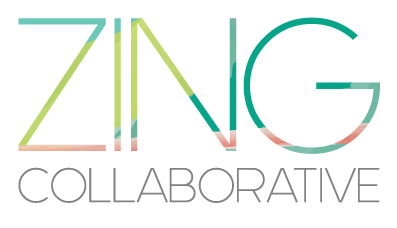Psychological Safety Isn't Just for Work
Psychological Safety Isn’t Just for Work
Psychological Safety is being able to show and employ one's self without fear of negative consequences of self-image, status or career (Kahn 1990).
On psychologically safe teams, team members feel accepted and respected.
While there's been much discussion of Psychological Safety at work in the past few years, psychological safety also applies outside of work.
Specifically, the invitation is to ask ourselves:
Am I creating psychological safety with my community members, neighbors, friends, and family members?
Am I showing up in a way that allows my loved ones to feel accepted and respected even if they think or feel differently than I do about certain topics?
Am I allowing my friends and loved ones to be their true selves - without fear of how I might behave or respond in return?
Am I willing to love, and hold space for, people who might think and feel and vote differently than I do?
. . . . .
Many years ago, in a now-legendary prank, my dad snuck a bumper sticker on my car — for the political candidate I opposed.
I drove to Minneapolis, completely unaware of this new car adornment, and only after arrival did I realize that I'd been promoting the opposing party for a good 140 miles. . . on the interstate!
And in my college's parking lot!
I was horrified - and also amused.
That was a good one.
The prank has lived on over the years - through buttons, hats, and various political swag, all in the spirit of good clean fun.
While we may disagree on certain topics, we've been able to find the laughter even in the most tension-filled political climates.
. . . . .
It appears that this time of good clean fun and spirited disagreement rooted in love and compassion has, in many instances passed.
We see this not only online, but also in our own backyard and our own inner circles.
In the past couple weeks alone, I've observed instances of:
Large groups of people being called “idiots” because of their choices on a variety of topics
A best friend telling his #1 comrade that they could no longer be friends based on a difference in opinion on our society's current polarizing-topic-of-the-day
Sweeping judgments and generalizations about groups of people on all sides of the political aisle, and all sides of our society's most heated current topics, with zero questions asked about why someone might be making the choices they're making, how they landed on their decision, or what feels true in their hearts.
Several years ago, I had the pleasure of studying and teaching about Purpose, based on the research of The Blue Zones. As part of this work, we examined what people said at the end of their lives.
Within this research, there were zero instances of people saying, “I'm really glad I cut out my friends and family who thought differently than I did” or “I'm really glad I spent so much time and energy trying to be right.”
Rather, they said things such as, “I wish I would have prioritized my relationships,” and “I wish wouldn't have acted out of fear.”
The invitation is to consider: what is one thing that I can do to increase the psychological safety within my circles, and to create just a bit more space for people to be who they are without fear of judgment?
In moments when we feel triggered or angered by the actions of others, we might also take this as an opportunity to look in the mirror before we look out the window — asking ourselves what might need to be resolved within our own hearts and minds and spirits, before we judge the hearts and minds and spirits of others.
I would also like to take this moment to say, whatever your political views (or lack thereof) or your religious affiliations (or lack thereof), and yes, your decisions about the current topic-of-the-day that is dividing and in some cases destroying our friendships and relationships: you are welcome here.
Positive change doesn't happen by molding ourselves to think the same, do the same, and be the same in every way or on every issue. Positive change comes often through expanding our perspective, considering points of view or life experiences that may be different than our own, and being open to considering all of these things - in service of creating the type of world we want to live in, together.
Thank you for reading and for leading.

